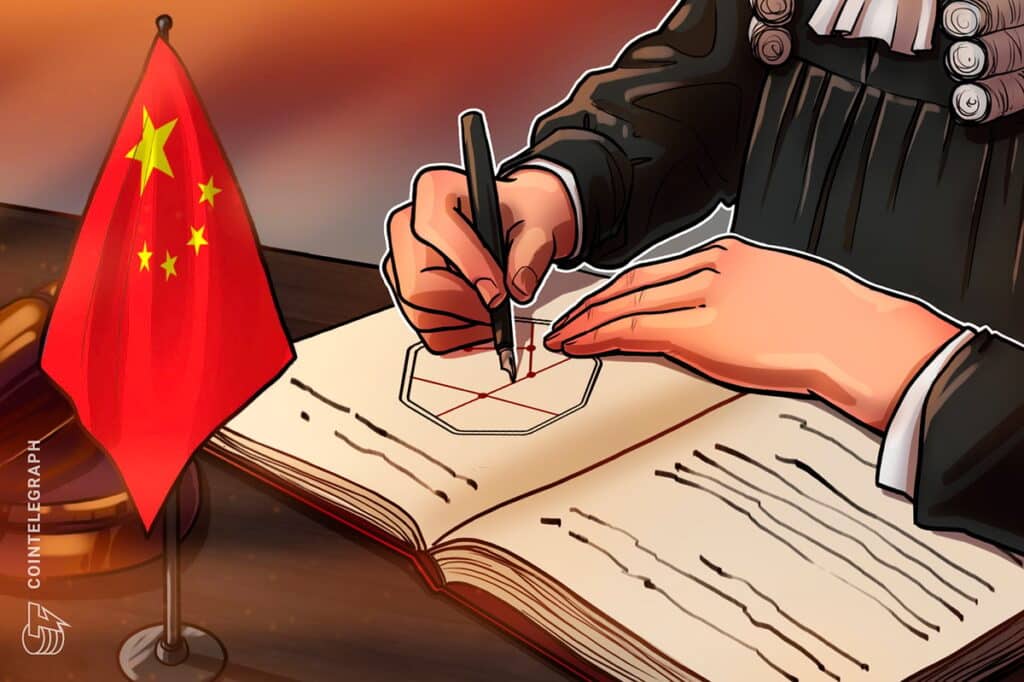China cracks down on Tether, Hong Kong to introduce licensing for stablecoins: Law decoded

More than two years after implementing a significant crypto ban, Chinese authorities are moving to use cryptocurrencies like Tether (USDT) in foreign exchange transactions. China's Supreme People's Procuratorate (SPP), the highest national agency responsible for legal proceedings in mainland China, has warned against using USDT as an intermediary to trade the Chinese yuan against other fiat currencies. The agency issued a joint statement with the State Administration of Foreign Exchange (SAFE), urging local authorities to implement strict measures against the stablecoin in cross-border foreign exchange transactions.
In the statement, SPP and SAFE declared it illegal to use USDT as a medium of exchange for domestic and foreign currencies. Under the law, “domestic branches must improve coordination procedures to punish fraudulent foreign exchange purchases, illegal foreign exchange transactions and other illegal and criminal activities related to foreign exchange,” officials said.
Meanwhile, Hong Kong has proposed to accept and regulate “fiat-referenced stablecoins” (FRS), requiring issuers to obtain a specific local license. A joint consultation paper from the Office of the Financial Services and Treasury and the Hong Kong Monetary Authority (HKMA) outlines the definition of fiat-referenced stablecoins and “requires any company actively selling FRS to the Hong Kong public” to obtain a license from the HKMA.
The requirement to obtain HKMA approval includes full support of all circulation stablecoins “at least equal to fair value”, identification and maintenance of reserve assets, disclosure and regular reporting. The document states that algorithmic stablecoins will not be eligible for licensing.
South Korea clarifies authorities' crypto holdings
Starting in 2024, approximately 6,000 South Korean officials will be required to publicly declare their crypto holdings. The country's Ministry of Personnel Management said that information on private crypto assets of government officials will be included in the public official code of conduct. A recent survey found that 18 out of 298 Korean lawmakers held digital assets in the past three years, while 11 lawmakers traded nearly $100 million in cryptocurrencies. Starting in June 2024, five major South Korean crypto exchanges – Upbit, Bithumb, Coinone, Korbit and Gopax – will launch separate “information delivery systems” to facilitate the registration of information about crypto holdings.
Continue reading
The New York Times filed a lawsuit against OpenAI
In yet another copyright infringement lawsuit to hit the artificial intelligence (AI) industry, The New York Times sued OpenAI, the creator of ChatGPT. The NYT claims OpenAI illegally used its content to train AI chatbots, thereby preventing the NYT from doing its job. The lawsuit invokes both the United States Constitution and copyright law to protect the NYT's original journalism. It also points out that Microsoft's Bing AI is excerpted verbatim from its content. The New York Times is not the first media company to raise concerns about AI chatbots. In October, the News Media Alliance made similar claims that AI chatbots are illegally ripping off copyrighted news and their developers are taking revenue, data and users away from news publications.
Continue reading
The European Council approved new guidelines for AI in journalism
The European Intergovernmental Media Coordinating Committee and the Information Society Council have issued new guidelines for the “responsible implementation” of AI in journalistic activities. The guide covers AI systems at different stages of journalism production, such as the initial decision to use AI and media organizations acquiring AI tools and incorporating them into the newsroom. The impact of the technology on audiences and society is a significant aspect of the Directive, and it also lays out the responsibilities to be taken by technology providers, platforms and Member States.
Continue reading














